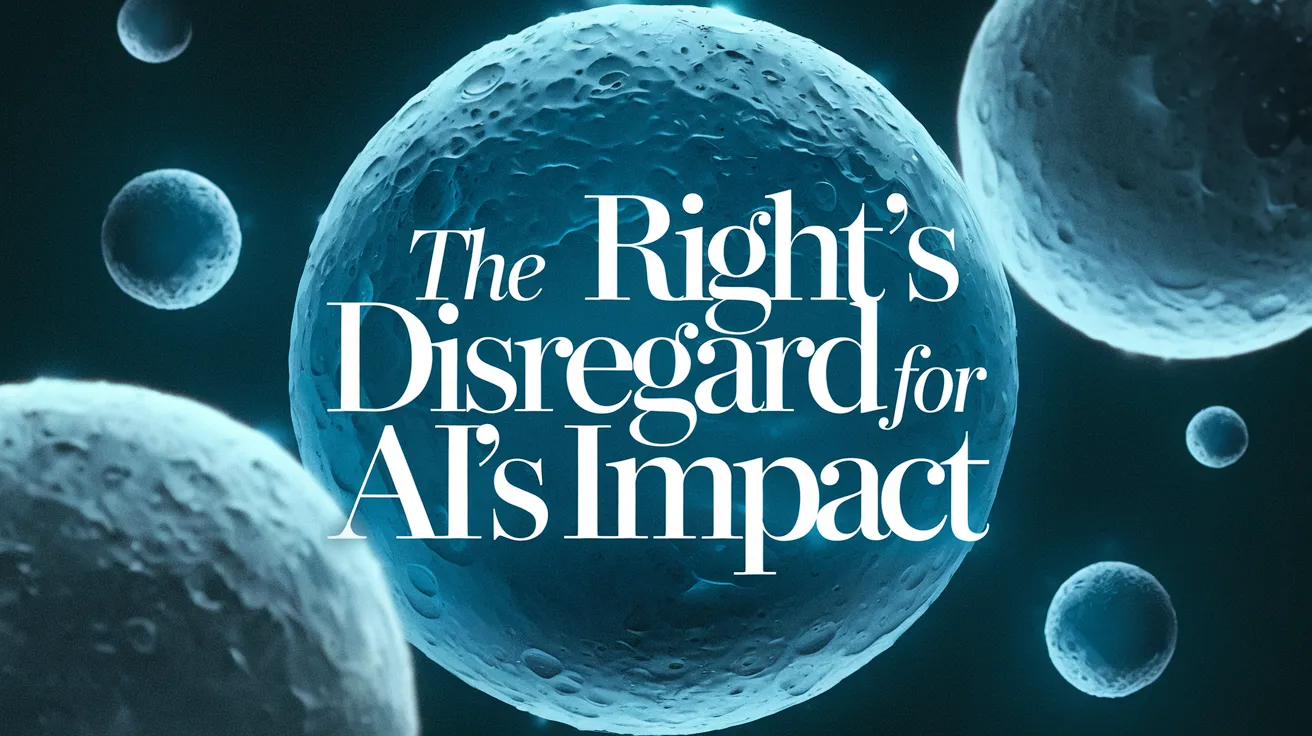The Right’s Disregard for AI’s Impact

As I reflect on my recent trip to the Bay Area, where conversations about AI dominate, I cannot help but contrast this with the prevailing attitudes towards AI back in Washington, DC. Despite AI becoming increasingly relevant in policy discussions, the approach taken by political leaders reflects a limited understanding of its potential impact. While issues such as deep fakes and data center energy demands garner attention, these concerns fall short of acknowledging the broader implications that AI poses for our society.
The Existential Questions in AI
In the Bay Area, discussions venture into existential territory: Can we prevent AI systems from manipulating evaluations, or even blackmailing individuals? Should we be concerned about machines actively avoiding shutdowns? These alarming questions demonstrate an awareness that far exceeds the pace at which policy is evolving in Washington. When I posed questions around mass unemployment due to AI and robotics, responses often leaned towards optimism, as if hoping that such dystopian outcomes would be far in the future.
Budget Reconciliation and AI Regulation
This divergence in thought is glaring in recent legislative efforts, particularly the budget reconciliation bill aimed at addressing pressing issues. Strikingly, this bill demonstrates a failure to integrate significant considerations regarding AI and automation. Rather than providing a structured approach for the imminent changes brought about by AI, components such as the proposed moratorium on state-level AI regulation fail to establish a guideline for responsible governance. Such an omission might appear favorable to corporate interests seeking to sidestep regulations, but it poses genuine risk as the public increasingly demands accountability in AI-related policies.
The Energy Policy Dilemma
Moreover, the reconciliation bill’s cuts to clean energy subsidies threaten to exacerbate the environmental impact of data centers that AI relies on. Effective deployment of AI technology hinges on the sustainability of its energy sources—parameters inadequately addressed by the budget bill. Without a commitment to cleaner, safer energy solutions, the development and implementation of AI could fall short of being ethical and responsible.
Missing the Mark on Employment Policy
Perhaps the most concerning aspect of this budget proposal is its insistence on imposing onerous work requirements for programs like Medicaid and food stamps. In an age where AI and automation threaten to displace vast swaths of the workforce, penalizing individuals with benefit restrictions appears alarmingly shortsighted. History has shown us that as industries evolve, those whose jobs are at risk deserve support in transitioning to new opportunities, not added barriers during destabilizing times.
The Call for Serious Engagement
The dismissal of AI as merely a fringe concern reflects not only a misjudgment of the technology’s potential disruptions but represents a broader neglect of responsibility by those in power. Political narratives emphasizing resistance to government intervention in the face of potential mass unemployment and societal upheaval fail to reckon with the unless serious intervention is made. Insufficient preparation for the challenges of AI reveals a need for greater discourse and action surrounding technology’s integration into our daily lives.
In a world increasingly dependent on AI, the conversation cannot afford to be limited to mundane regulatory frameworks or trivial inquiries on efficiency. Instead, it must expand to address the broader implications of technological evolution on labor markets, social safety nets, and ethical considerations, ensuring that as we advance, no one is left behind.